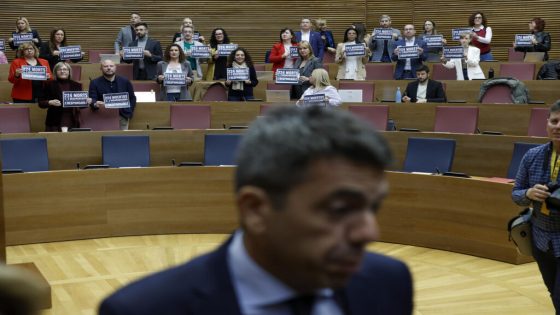On February 20, 2025, the political atmosphere in Spain was charged as the parliament voted on the motion for the resignation of Carlos Mazón. Families of the victims from the recent flooding gathered outside, urging lawmakers to take action. Despite their hopes, the outcome was predictable, with Mazón retaining his position amid heated debates and protests inside the chamber.
- Victims' families demand Carlos Mazón's resignation.
- Aitana Mas returns after cancer recovery.
- Voting incidents during Mazón's resignation motion.
- Opposition accuses Mazón of ignoring victims.
- Mazón deflects criticism to focus on reconstruction.
- Calls for accountability from Spanish agencies.
Political Tensions Rise as Carlos Mazón Fights for His Position
Why does Carlos Mazón continue to hold his position despite the public outcry? On February 20, 2025, the Spanish parliament faced a crucial vote on whether Mazón should resign. The session was marked by emotional appeals from families of victims affected by recent floods, yet the vote concluded with 52 against and 41 in favor of his resignation. The atmosphere was charged, with shouts of “cowards!” echoing through the chamber.
Opposition Parties Demand Accountability Amid Protests
During the session, opposition leaders expressed their frustration with Mazón’s leadership. They accused him of ignoring the victims’ families and failing to take responsibility for the disaster response. The protests outside the parliament reflected a deep-seated anger among the public, questioning the government’s effectiveness in crisis management.
Key Events from the Parliamentary Session
The parliamentary session was filled with significant moments that highlighted the political divide:
- Emotional speeches from opposition leaders emphasizing the need for accountability.
- Protests outside the parliament demanding justice for flood victims.
- Contentious voting process that led to accusations of unfairness.
- Calls for Mazón’s resignation met with strong resistance from his party.
Public Reaction and Implications for Governance
The public response to the parliament’s decision has been overwhelmingly negative. Many citizens are questioning the government’s commitment to their welfare. This situation serves as a reminder of the importance of transparency and accountability in governance. As similar crises arise globally, the lessons learned from Spain’s current political climate may resonate far beyond its borders.
In conclusion, the events of February 20, 2025, reflect a significant moment in Spanish politics, showcasing the challenges of leadership and public trust. As the situation develops, it will be interesting to see how both the government and the public respond to these ongoing challenges.
































